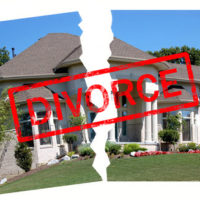Classifying And Dividing Marital Property In Florida

Like most other states, Florida is an equitable division jurisdiction, so the judge must divide property equitably after a divorce. Although “equitably” is usually roughly the same thing as “equally,” the two terms are not synonymous. The idea behind an equitable distribution is that the marriage dissolution should not be a disproportionately unfair financial burden on either party, at least in most cases.
Before marital property is divided, the judge must first properly classify it as such, and despite the fact that the rule is relatively straightforward, this process is often much more involved than looking at a calendar.
Marital v. Nonmarital Property
Under Section 61.075, there is a presumption that all property in a divorce is marital property unless it was acquired by gift or before the marriage; to overcome this presumption, challenging spouses must always present clear and convincing evidence that the car, house, cash, stocks, or other property is nonmarital.
Commingling is one of the most frequent issues in property division matters. This is a term that is normally associated with corporate fraud, i.e., a corporate boss mixes personal and business funds and obligations. But in this context, commingling means that property has both marital and nonmarital characteristics.
For example, if Husband owned a rent house prior to the marriage and the couple uses Wife’s wedding gift to fund improvements to the property, the rent house could theoretically be Husband’s separate property, marital property belonging to both Husband and Wife, or Wife’s separate property. There are several possible resolutions:
- If Wife’s wedding gift only funded a few minor improvements, such as new carpet or a fresh coat of paint, a judge would likely rule that the entire property, and all rent proceeds, belong to Husband.
- If the wedding gift funded more substantial improvements, like an additional room or a renovated kitchen, a judge would likely order Husband to reimburse Wife for a proportional cost of these updates, and Husband would retain the house after the divorce.
- If the rent house was uninhabitable and Wife’s investment enabled Husband to rent the house, a judge might rule that the house has transmuted into marital property.
The final ruling is significant, because generally, the increase from nonmarital property is nonmarital property, and the increase from marital property is subject to division.
Dividing Marital Property
To achieve an equitable property division, the court can consider a number of different factors, including:
- Prior Agreements: Under the Uniform Premarital and Marital Agreements Act, courts generally defer to any voluntary agreement between the spouses that was not blatantly one-sided when they signed it.
- Contributions to the Marriage: The court will consider both economic contributions from a “breadwinner” spouse and noneconomic contributions from a “caretaker” spouses, even if these roles overlap, and they often do.
- Nonmarital Property and Alimony: If one spouse is either giving up a lot, or receiving a lot, in either category, the court may take this result into consideration when dividing property.
- Dissipation (Waste): Fault in the breakup of the marriage is not technically a consideration, but the judge may consider waste of assets related to such fault (g. Husband spends $10,000 on gifts to a girlfriend).
Some other factors include the share of debts incurred and the custody of minor children.
Reach Out to Aggressive Attorneys
Divorce property division is usually a complex affair. For a free consultation with an experienced family law attorney in Port St. Lucie, contact Eighmie Law Firm, P.A. We routinely handle cases in Port St. Lucie County and nearby jurisdictions.
Resources:
floridabar.org/divcom/jn/jnjournal01.nsf/8c9f13012b96736985256aa900624829/fe02086d40f4e68e85257e6c004cead9!OpenDocument
leg.state.fl.us/Statutes/index.cfm?App_mode=Display_Statute&URL=0000-0099/0061/Sections/0061.075.html


